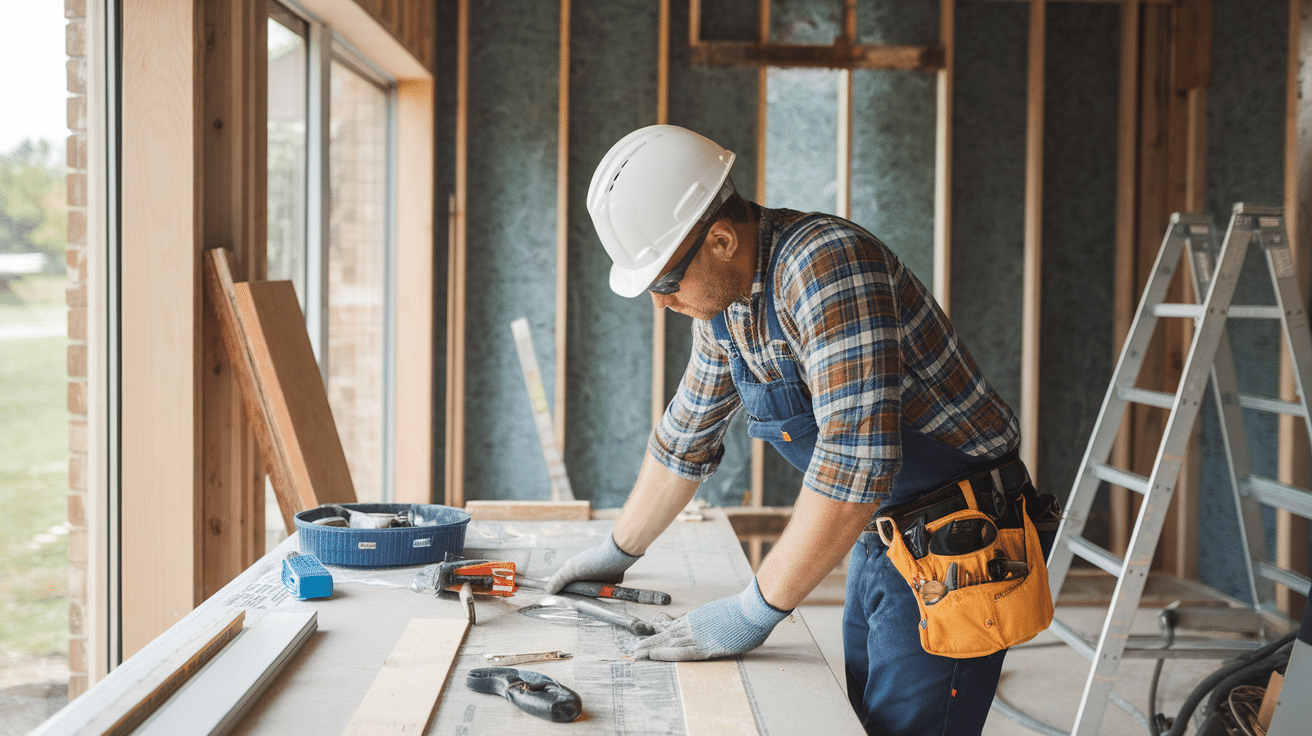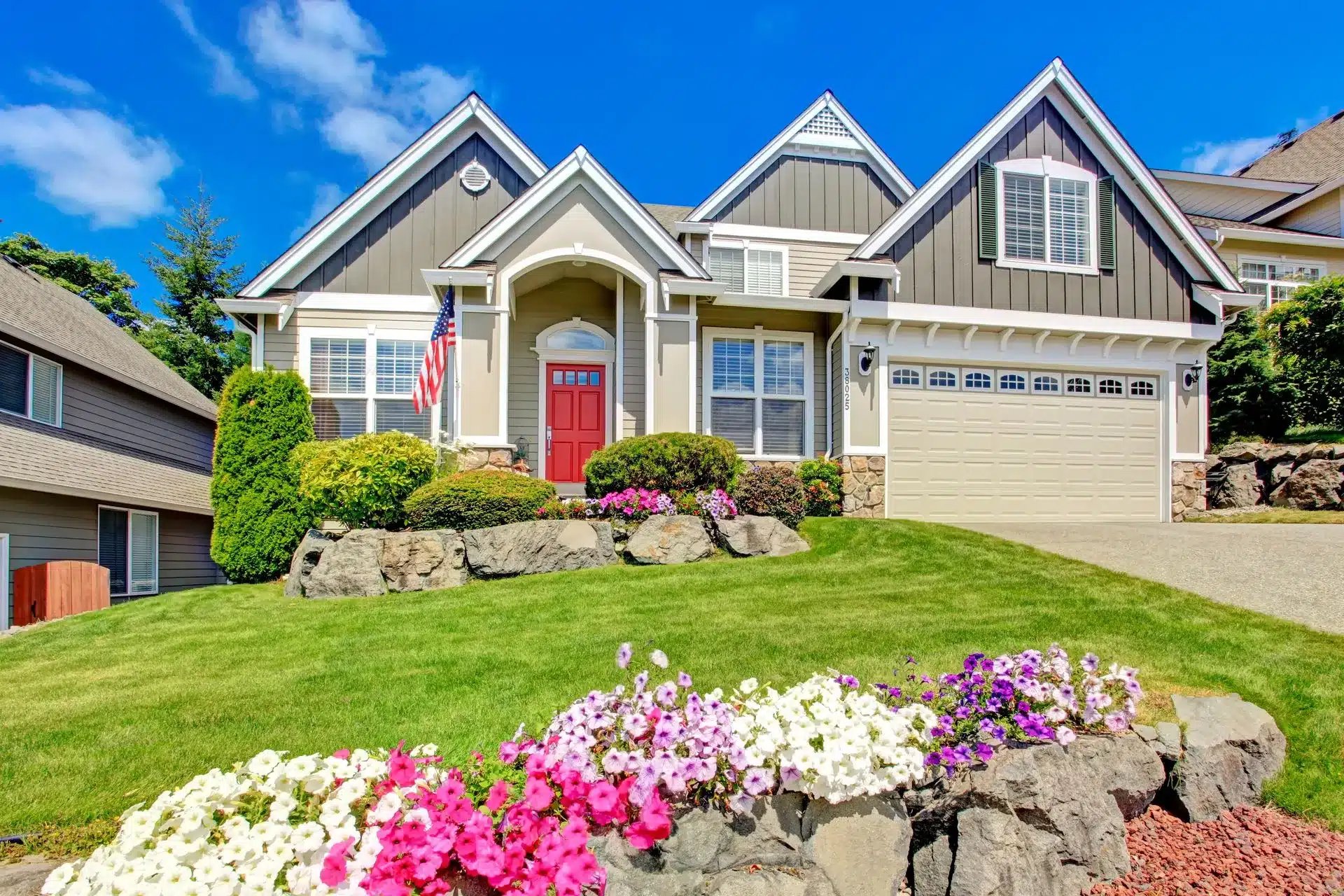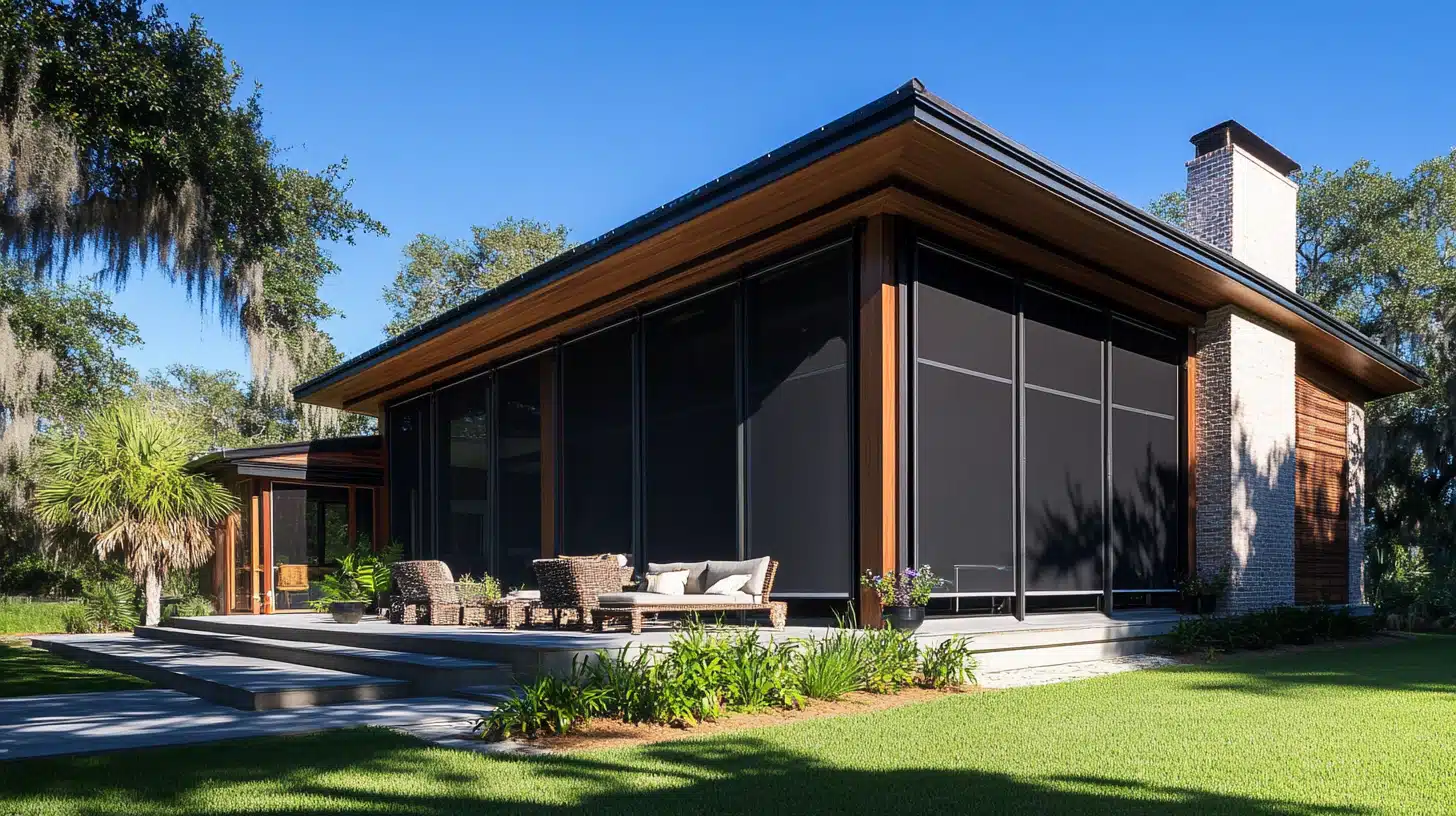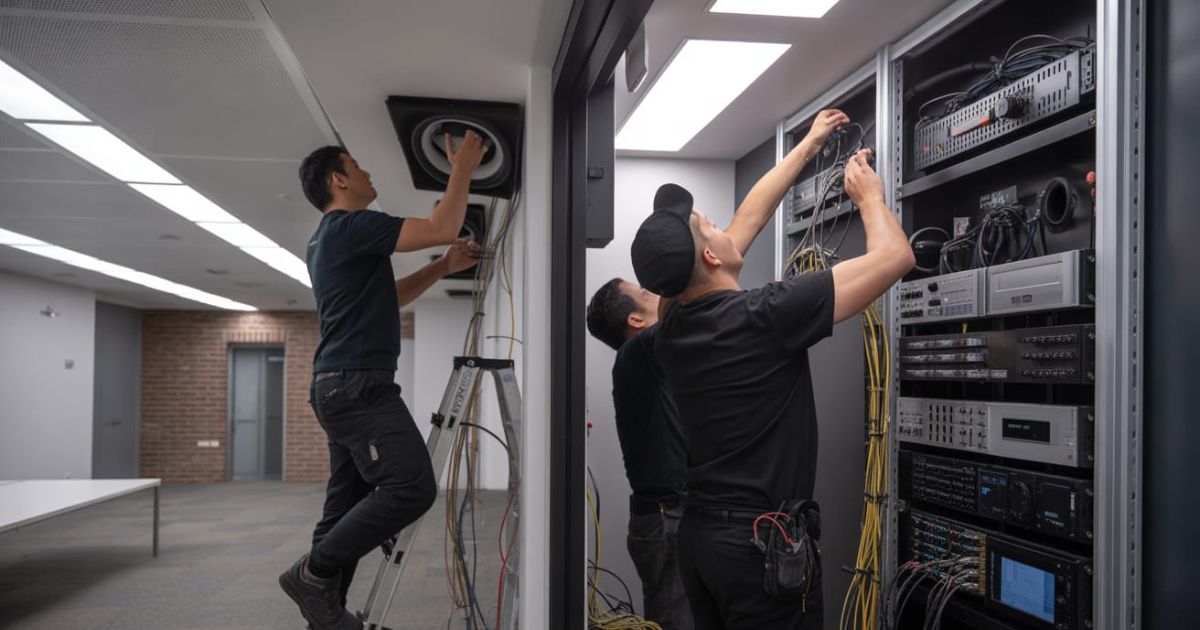Choosing the Right Contractors for Home Additions
Are you looking to expand your living space? A home addition offers the perfect solution for growing families and changing needs without the hassle of moving.
However, the success of your project largely depends on finding the right contractor to bring your vision to life.
This guide covers everything you need to know about home additions and selecting the ideal professional for the job.
From understanding different addition types and their benefits to navigating costs and avoiding common pitfalls, we’ve gathered essential insights to help you make informed decisions.
With proper planning and the right contractor, your home addition can enhance your living experience and property value.
Types of Home Additions
Homeowners often look for ways to gain more space without moving to a new house. Adding on to their current home can give them the extra room they need while increasing their property’s value.
Room Additions
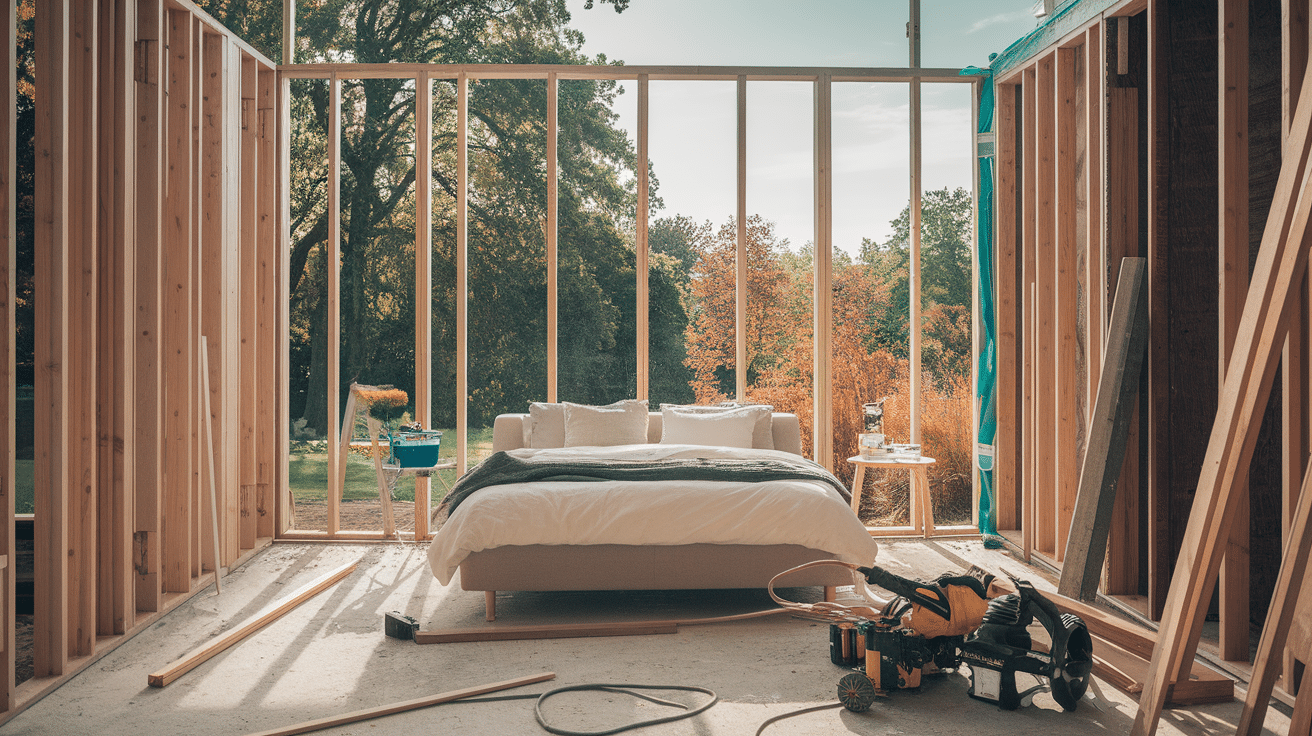
Expanding your living space, such as adding a new bedroom or family room, extends your home’s footprint by building out from an existing wall.
It requires foundation work, framing, and connecting to your home’s systems, like electrical and HVAC.
Second-Story Additions
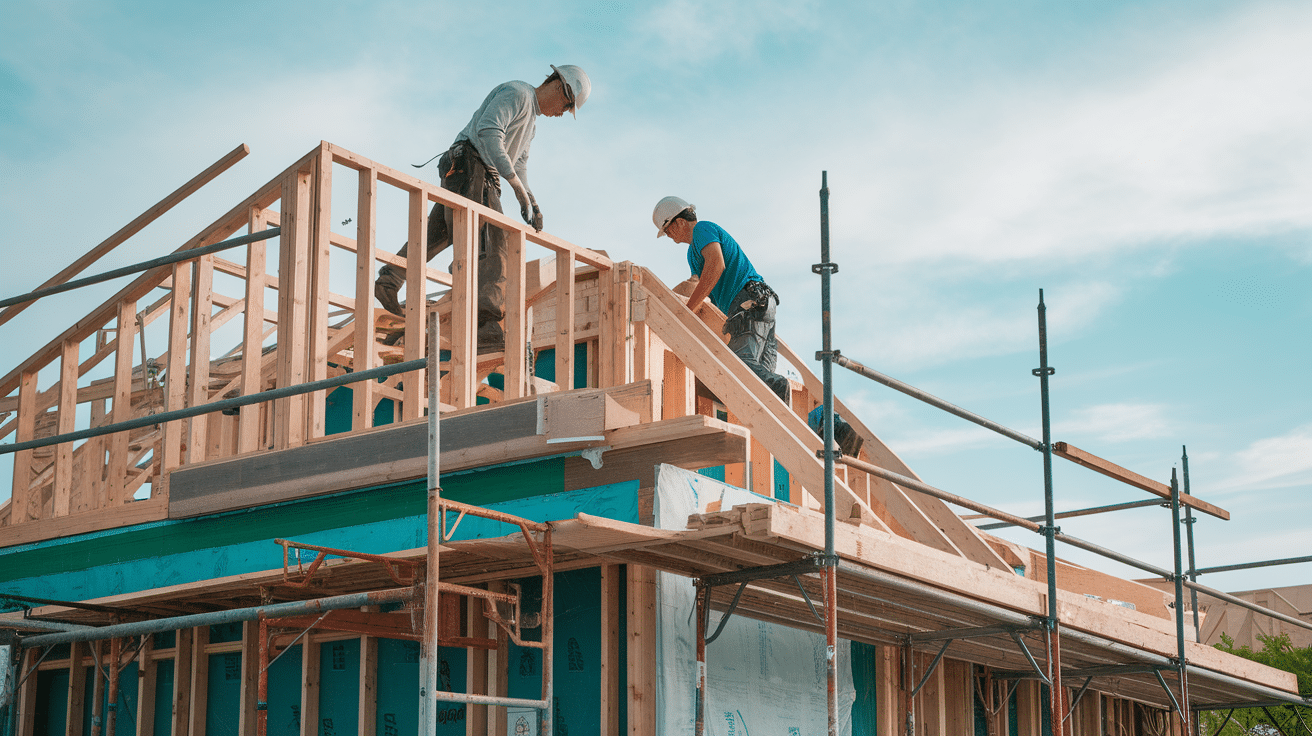
Building upwards to create additional living space. These additions make use of your existing foundation but require structural analysis to ensure your home can support the extra weight.
Second-story projects often need more complex planning but preserve yard space.
Garage Additions
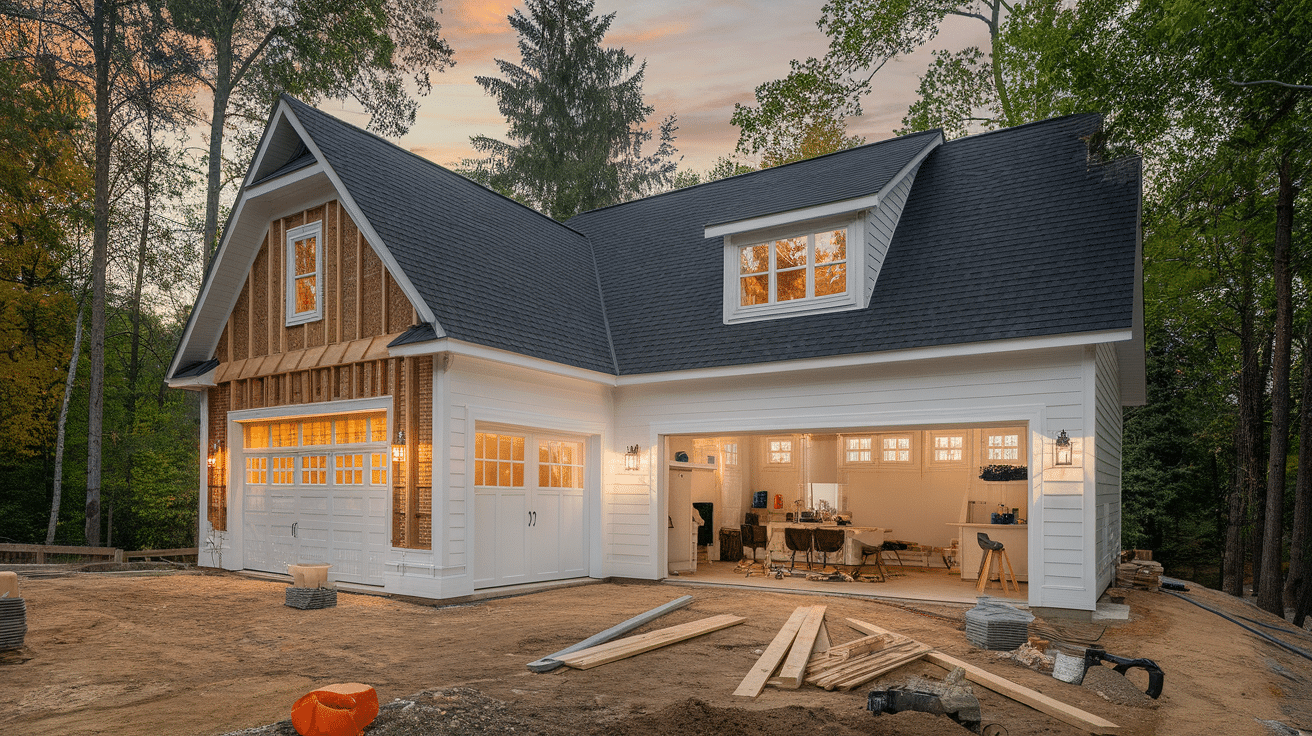
Add or expand garage space for more storage or convert it into living space.
New garages provide protected parking and storage, while conversions can create guest rooms, home offices, or workout areas with less extensive construction than brand-new additions.
Bump-Outs
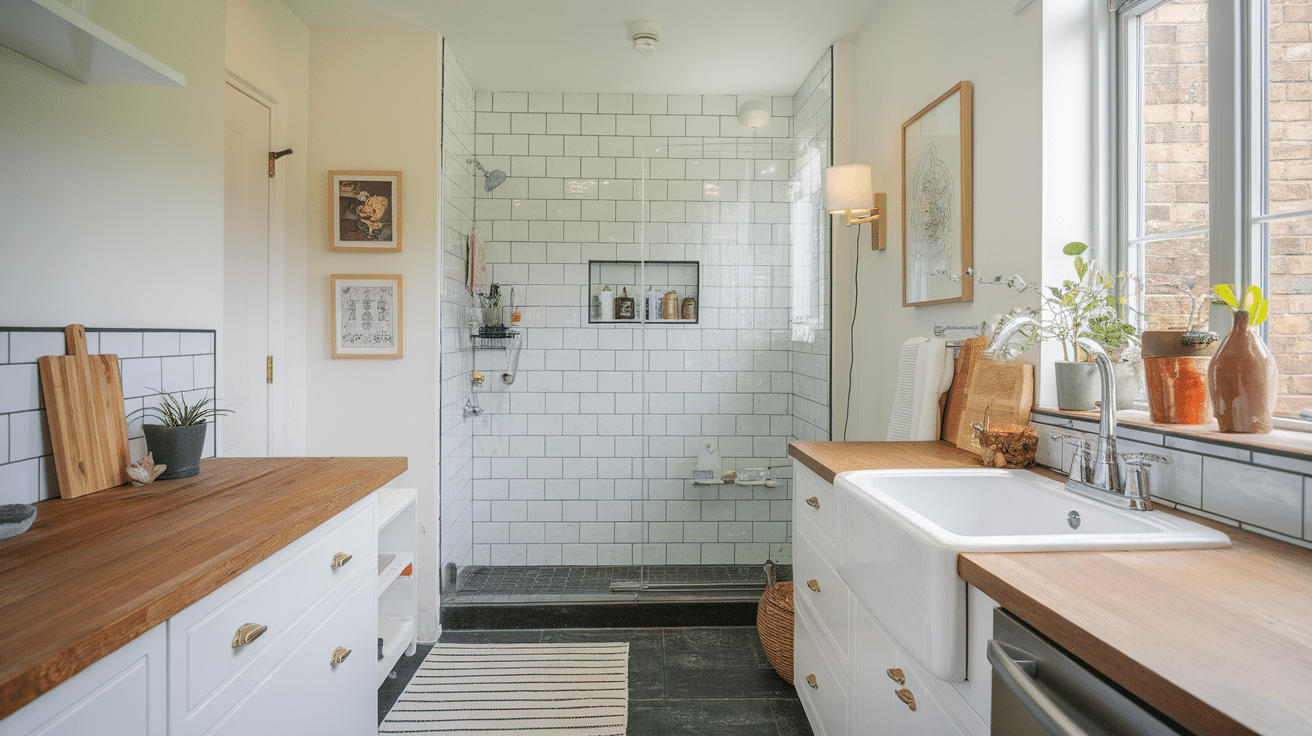
Expand existing rooms with minimal construction. These small additions extend a room by a few feet without needing a full foundation.
They’re perfect for enlarging kitchens, bathrooms or creating eating nooks at lower costs than full additions.
In-law Suites
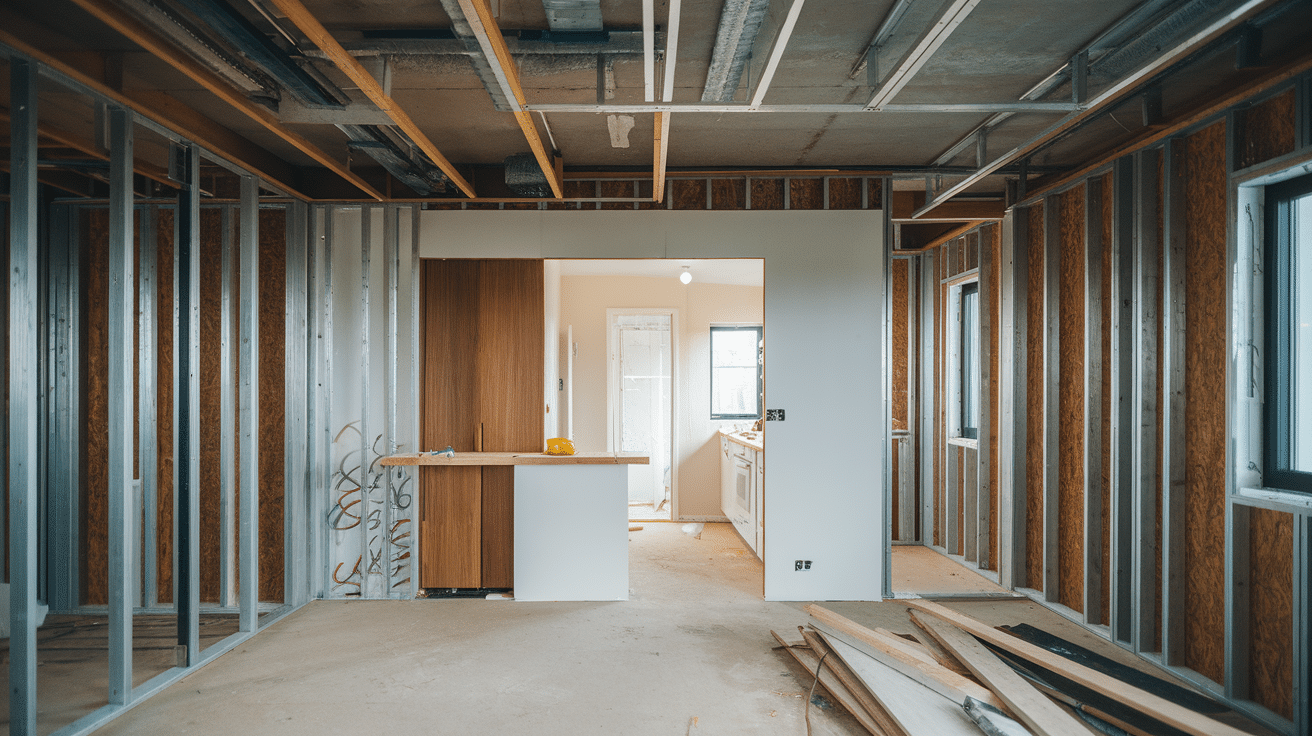
Add a separate living space for family or rental use. These self-contained units typically include a bedroom, bathroom, kitchen, and living area.
They provide privacy for multi-generational families or income potential through rental opportunities.
Benefits of Home Additions
Adding square footage to your home often results in higher property value. Home additions typically offer a good return on investment when selling your house.
Buyers are willing to pay more for homes with extra rooms or expanded living areas that meet their needs.
Home additions give families the room they need without the stress of moving. Extra space means less crowding and more comfort for everyone in the household.
You can stay in the neighborhood you love while getting the bigger home you’ve been wanting.
Unlike buying a new home, additions let you create exactly what you want. You can design spaces that match your specific needs and lifestyle preferences.
From custom storage solutions to specially sized rooms, your addition can be built to fit your exact requirements.
How to Choose the Right Contractor for Your Home Addition
Finding the right professional for your home addition project is just as important as the design itself. A skilled contractor can turn your vision into reality while keeping the process smooth and stress-free.
Researching Local Contractors
Where to search (e.g., Angi, Houzz, BBB) and how to verify qualifications. Start by using trusted platforms like Angi or Houzz to find contractors in your area who specialize in home additions.
Check if they’re registered with the Better Business Bureau and have proper licensing for your state.
Look for contractors with many years in business, as this often indicates stability and reliability.
Checking Reviews and References
The importance of reviews, past work samples, and contacting references. Read through customer feedback on multiple platforms to spot patterns in praise or complaints.
Ask contractors for photos of completed projects similar to your planned addition.
Don’t skip calling past clients—they can provide honest insights about working with the contractor, including communication style and how they handled any problems that came up.
Interviewing Contractors
What questions to ask about past projects, experience, timelines, and licensing. Meet with at least three contractors before making your decision.
Ask about their experience with projects like yours, typical timelines, and how they handle permits. During this meeting, request proof of insurance and licensing.
Discuss their process for handling changes or unexpected issues during construction. Please pay attention to how well they listen to your needs and whether they offer helpful suggestions.
Important Questions to Ask Your Contractor
Before signing any contract, it’s essential to evaluate potential contractors thoroughly.
Asking the right questions can help you avoid problems, ensure quality work, and keep your project on track and within budget.
What Experience Do You Have With My Type of Home Addition?
Ask contractors to share specific examples of projects similar to yours that they’ve completed. Request to see before-and-after photos of these additions.
An experienced contractor should be able to discuss common challenges with your particular type of addition and how they typically solve them.
Their familiarity with similar projects can help prevent costly mistakes and ensure quality results.
Can You Provide a Timeline and a Detailed Cost Breakdown?
A good contractor will give you a clear schedule showing each phase of construction and when it should be completed. They should also provide an itemized estimate that separates labor, materials, permits, and other costs.
This transparency helps you understand where your money is going and allows you to make informed decisions about potential changes to the project scope.
Are You Licensed, Insured, and Bonded?
Proper credentials protect both you and the contractor. Ask to see current licenses required by your state or local government.
Verify that they carry liability insurance to cover potential property damage and workers’ compensation insurance for anyone working on your property.
If bonding is available in your area, a bonded contractor offers additional financial protection if they fail to complete the work as agreed.
Cost Considerations for Home Additions
Planning for the financial aspects of your home addition is crucial for project success.
Understanding the various factors that influence costs will help you create a practical budget and avoid unwelcome surprises during construction.
1. Factors Affecting Cost
Size of the addition, materials, labor, location, and permits. The square footage directly impacts cost, while premium materials increase expenses.
Labor rates vary by region, with urban areas typically charging more. Permit fees differ by municipality, and challenging site conditions can add to overall costs.
2. Budget Planning
Tips on how to set a realistic budget, including the importance of contingency funds. Research typical costs for similar projects and get multiple quotes.
Set aside 15-20% extra for unexpected issues. Consider scheduling during off-peak seasons for better rates, and prioritize must-haves over nice-to-haves.
3. Average Costs for Different Types of Additions
Room additions, second stories, garage conversions, etc. Single-room additions range from $200-$600 per square foot.
Second-story additions cost more due to structural requirements. Garage conversions are comparatively less expensive.
Kitchen and bathroom additions cost more than bedrooms due to plumbing and electrical work. In-law suites represent the highest investment but offer potential rental income.
Common Mistakes to Avoid
Even careful homeowners can make errors when hiring contractors for major projects.
Being aware of common problems can help you avoid costly mistakes and ensure your home addition goes smoothly.
- Always add 15-20% to initial estimates for unexpected expenses
- Get detailed written quotes that include materials, labor, and permit fees
- Ask about potential cost increases and have a plan for handling them
- Put all project details in writing, including timeline and materials
- Schedule regular progress meetings with your contractor
- Discuss how changes to the original plan will be handled and documented.
- Verify contractor licenses with your local building department
- Request proof of liability insurance and workers’ compensation coverage
- Check for complaints with the Better Business Bureau and local consumer protection agencies
Conclusion
Finding the right contractor for your home addition requires careful planning and research, but the effort pays off with a successful project that adds value to your home.
Take time to thoroughly vet potential contractors, compare multiple quotes, and check references before making your decision.
A well-planned addition not only creates more living space but can update how you experience your home every day.
With the right professional partner, clear communication, and proper budgeting, your home addition can bring years of enjoyment and a significant return on investment.
Frequently Asked Questions
What is the cheapest type of home addition?
Bump-outs and garage conversions typically cost less than full-room additions because they require less extensive foundation work and structural changes.
Is it cheaper to build a house or add an addition?
When comparing equivalent square footage and quality, adding to an existing home is usually less expensive than building a new house.
How long does it take to complete a home addition?
Most home additions take 2-6 months to complete, depending on their size, complexity, and weather conditions during construction.

